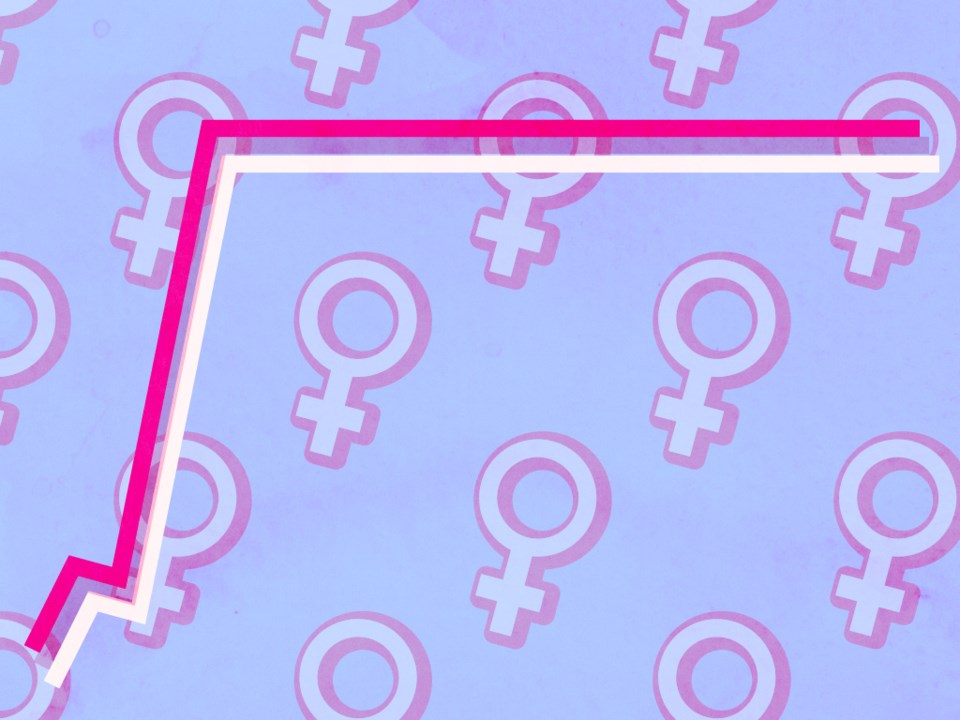For 11 days in September 1995, some 50,000 activists, advocates and other world leaders met in Beijing for the fourth global conference on women.
They outlined the biggest obstacles to gender equality — issues like poverty, health care, education — and then laid out a path to overcome them. Together, they reaffirmed their commitment to ensuring that women and girls’ rights are “an inalienable, integral and indivisible part of all human rights and fundamental freedoms.”
Jackie Neapole, executive director of the Canadian Research Institute for the Advancement of Women (CRIAW), was just a teenager at the time. But she remembers her predecessors talking about Beijing, its Declaration and Platform for Action, and what it was like to be among tens of thousands of women from around the world.
“I wish I was there,” Neapole says.
“There was just this positive feeling at the time that this was going to be a shift, that this might lead to something.”
Canada was one of 189 countries to sign on to the declaration, but 25 years after Beijing, the report paints a less-than-rosy picture of progress.
“We’re still really advocating for the same things,” Neopole says.
Among the key priorities outlined in Beijing were health, poverty, women in power and decision-making, as well as education and training, and violence against women.
When it comes to how much Canada has moved the needle on those issues, “it’s a mixed bag,” says Andrea Gunraj, vice-president of public engagement for the Canadian Women’s Foundation.
“Progress has been uneven for women who are Indigenous, women who are racialized, who have disabilities, who live in the north, who are experiencing poverty… We have to look at it from those perspectives.”
Earlier this week, Equal Measures 2030 released a report looking at five indicators of gender equality around the world, accompanied by an open letter urging global leaders to accelerate their actions.
The indicators are: family planning, high school completion, women in government ministerial roles, workplace gender equality laws, and women’s perceptions of safety in public spaces at night.
In those respects, Canada is doing quite well, says Alison Holder, director of Equal Measures 2030.
When it comes to education, 95 per cent of girls finish high school, up from 85 per cent in the mid-1990s. Prime Minister Justin Trudeau’s emphasis on a gender-equal cabinet also offered a boost to Canada’s rankings.
But in other areas, Holder says Canada seems to have stalled. Since the 1990s, slightly less than 90 per cent of women have said they have access to the contraception and family planning they need. But nothing Canada has done since has addressed the lack of access for the remaining 10 per cent.
“I was disappointed to see overall how flat the curve was. We’d like to see those lines really going upward much more quickly,” she says.
“For Canada, it’s a fairly positive story, but there’s still lots more to do.”
Neapole isn’t a big fan of Canada comparing itself to countries performing much more poorly or the “it could be worse” mentality.
“We keep the bar low by focusing that way,” she says.
“We should always be aspiring — especially if we espouse these politics — to reach higher and to keep the bar high.”
The year of the Beijing conference, Canada ranked first on the UN’s gender equality index. It dropped to 25th by 2015, but rose to 13th as of 2018.
While there has been considerable progress during that time, it’s been incredibly uneven, as Gunraj from the Canadian Women’s Foundation noted.
A woman is killed every other day in Canada, once a week a woman is murdered by her partner and one in three women will experience some form of sexual violence over the course of their lives.
Nearly half of women who are victims of violent crime are women with disabilities, per the Unfinished Business report. And while violent crime in general has dropped in Canada, sexual assault is the one violent crime that continues to buck the trend.
The risk of violence is even greater for Indigenous women, who were killed at a rate almost six times greater than non-Indigenous women between 2001 and 2015.
And while more women hold post-secondary degrees than men, according to Statistics Canada, that hasn’t translated to equal pay. In fact, per the Unfinished Business report, Canada has one of the highest pay gaps among the Organisation for Economic Co-operation and Development group of industrialized countries, coming 31st out of 36.
White women make an average of 82 cents for every dollar white men make, while racialized women make 60 cents and Indigenous women make 57 cents for every dollar a white man makes.
“Canada is not nearly close enough to meeting its 2030 Agenda (for Sustainable Development) goals,” the report says. “Women are still waiting for meaningful equality.”
Between 2006 and 2018, the gender gap narrowed by less than a quarter of a percentage point per year on average.
Young girls will not see gender equality in their lifetime “if we let it continue at a glacial place,” Gunraj says. At this rate, it will take 164 years to close the gap, according to Unfinished Business.
And, as the report notes, for every step forward there seems to be another step back.
“The closer women get to closing the gender gap, it seems the greater the barriers become to achieving equality.”
To read the full Broken series about violence against women, trans and non-binary people, go here.
Email us: [email protected]
- Global News
